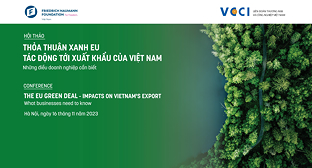Dispute Settlement DS299
21/05/2013 12:00
European Communities — Countervailing Measures on Dynamic Random Access Memory Chips from Korea
| Short title: | EC — Countervailing Measures on DRAM Chips |
| Complainant: | Korea, Republic of |
| Respondent: | European Communities |
| Third Parties: | China; Chinese Taipei; Japan; United States |
| Agreements cited: (as cited in request for consultations) | GATT 1994: Art. VI:3, X:3 Subsidies and Countervailing Measures: Art. 1, 2, 10, 11, 12, 14, 15, 17, 19, 22,32, 32.1 |
| Request for Consultationsreceived: | 25 July 2003 |
| Panel Reportcirculated: | 17 June 2005 |
Consultations
Complaint by Korea.
On 25 July 2003, Korea requested consultations with the European Communities concerning the EC’s provisional countervailing measures and any final countervailing measures which may be finalized and implemented later this year against dynamic random access memory chips (“DRAMs”) from Korea.
According to Korea, when considering the determinations with respect to the provisional measures against the DRAMs from Korea, which have already been implemented, and any final measures on the same products, which may be finalized and implemented later this year, the European Commission failed to comply with various WTO substantive and procedural requirements, including demonstration of the existence of a financial contribution and a benefit conferred, and demonstration of specificity of the subsidies concerned.
In Korea’s view, these EC’s measures at issue are inconsistent with the EC’s obligations under the following WTO provisions:
- Articles VI:3 and X.3 of GATT 1994;
- Articles 1, 2, 10, 11, 12, 14, 15, 17, 22 and 32.1 of the Agreement on Subsidies and Countervailing Measures.
On 25 August 2003, Korea requested further consultations with the EC concerning the EC’s final countervailing measures, which were adopted by the European Council on 11 August 2003 and published in the Official Journal of the EC on 22 August 2003.
Korea wished to consult on the same issues raised in its previous consultations request, but from the additional perspectives of the adopted final measures.
Korea further elaborated the EC’s violation of Article 15 of the SCM Agreement. Korea claimed that the material injury finding by the EC is inconsistent, inter alia, with Articles 15.1, 15.2, 15.4, and 15.5 of the SCM Agreement.
On 19 November 2003, Korea requested the establishment of a panel. At its meeting on 1 December 2003, the DSB deferred the establishment of a panel.
Panel and Appellate Body proceedings
Further to a second request to establish a panel by Korea, the DSB established a panel at its meeting on 23 January 2004. China, Japan, Chinese Taipei and the United States reserved their third-party rights.
On 24 March 2004, the Panel was composed. Following the resignation of the Chairperson on 22 June 2004, a new Chairman of the Panel was appointed on 27 July 2004.
On 17 June 2005, the Panel Report was circulated to Members. The Panel finds as follows:
- The Panel rejects most of Korea’s claims with regard to the question of subsidization, and finds that for three of the five programmes the EC’s determinations of financial contribution and benefit are consistent with the SCM Agreement. The Panel upholds Korea’s claims with respect to the so-called “grant methodology” applied by the European Communities for calculating the amount of the benefit which it finds to be inconsistent with the SCM Agreement.
- In respect of the injury determination, the Panel also rejects most of Korea’s claims. However, the Panel upholds Korea’s claim that the EC failed to examine the factor “wages” as a relevant factor affecting the domestic industry. The Panel also finds against the European Communities with regard to the investigating authority’s causation analysis which the Panel considers not to have complied with the requirement not to attribute injury caused by other factors to the subsidized imports.
At its meeting on 3 August 2005, the DSB adopted the Panel Report.
Implementation of adopted reports
At the DSB meeting on 31 August 2005, the European Communities announced its intention to fully comply with the DSB’s recommendations and rulings in this case. On 12 October 2005, the parties informed the DSB that they had agreed, pursuant to Article 21.3(b) of the DSU, that the reasonable period of time for the European Communities to implement the recommendations and rulings of the DSB shall be 8 months, expiring on 3 April 2006.
At the DSB meeting on 21 April 2006, the European Communities said that they had fully implemented the DSB’s recommendations and rulings by adopting a new regulation which entered into force on 13 April 2006. Korea disagreed and said that the European Communities had not fully implemented the DSB’s recommendations and rulings.
Các tin khác
- Dispute Settlement DS616: European Union — Countervailing and Anti-Dumping Duties on Stainless Steel Products from Indonesia (24/01/2023)
- Dispute Settlement DS614: Peru — Anti-dumping and countervailing measures on biodiesel from Argentina (02/09/2022)
- Dispute Settlement DS603: Australia — Anti-Dumping and Countervailing Duty Measures on Certain Products from China (24/06/2021)
- Dispute Settlement DS602: China — Anti-Dumping and Countervailing Duty Measures on Wine from Australia (22/06/2021)
- Dispute Settlement DS600: European Union and certain Member states — Certain measures concerning palm oil and oil palm crop-based biofuels (15/01/2021)
 Home
Home
 About Us
About Us




















